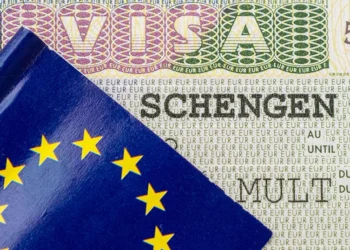The Swedish government has introduced a significant change in its immigration policy by increasing the income criteria for foreign migrants, mandating that they must earn a minimum of 80% of the country’s average salary. This move, announced by the Swedish Ministry, is set to take effect on November 1, 2023, and aims to address various issues related to low-skilled labor immigration, combat fraud, and tackle labor migration-related abuses.
The Swedish Justice Ministry has outlined that the primary objective of this new measure is to reduce low-skilled labor immigration, fight against fraudulent activities in the labor market, and address the exploitation of labor migrants. It represents a critical step in the government’s ongoing efforts to strengthen the conditions for labor migration while also minimizing the requirements for such migration.
In addition, the government has emphasized that this change is designed to ensure that individuals already residing in the country can access job opportunities that come with fair wages. The move to increase the income requirement is seen as a means to establish equitable conditions for labor immigrants entering and working in Sweden.
One of the main concerns driving this policy change is the prevalence of fraud and exploitation in the current labor market conditions, leading to situations where individuals are coerced into working for substandard pay, longer hours, and without proper tax compliance. By raising the wage requirement, the Swedish government intends to bolster the position of labor migrants in the job market, protect their salaries from exploitation, and discourage competition based on low wages.
This shift also aims to create a more just and fair work environment for labor migrants, promoting better working conditions and reasonable compensation. The income requirement change will impact various sectors, including care, sales, agriculture, gardening, forestry, berry picking, fishing, and roles with shorter training or introductory periods.
However, it’s important to note that the new income requirement will not apply to certain groups of employees, including those exercising their freedom of movement, individuals with or applying for an EU Blue Card, those with an ICT permit, and seasonal workers. Exemptions also extend to categories such as coaches, athletes, au pairs, trainees on international exchange programs, trainees with ties to higher education, and researchers.
To obtain a work permit in Sweden, individuals will need a valid passport and a confirmed job or contract. The minimum salary requirement ranges from 1,200 euros, based on Swedish collective agreements.
This policy change underscores Sweden’s commitment to creating a more equitable and secure labor market while addressing issues that have led to exploitation and unfair labor practices. It marks a significant shift in the country’s approach to immigration, with the government prioritizing the welfare and fair treatment of labor migrants.









